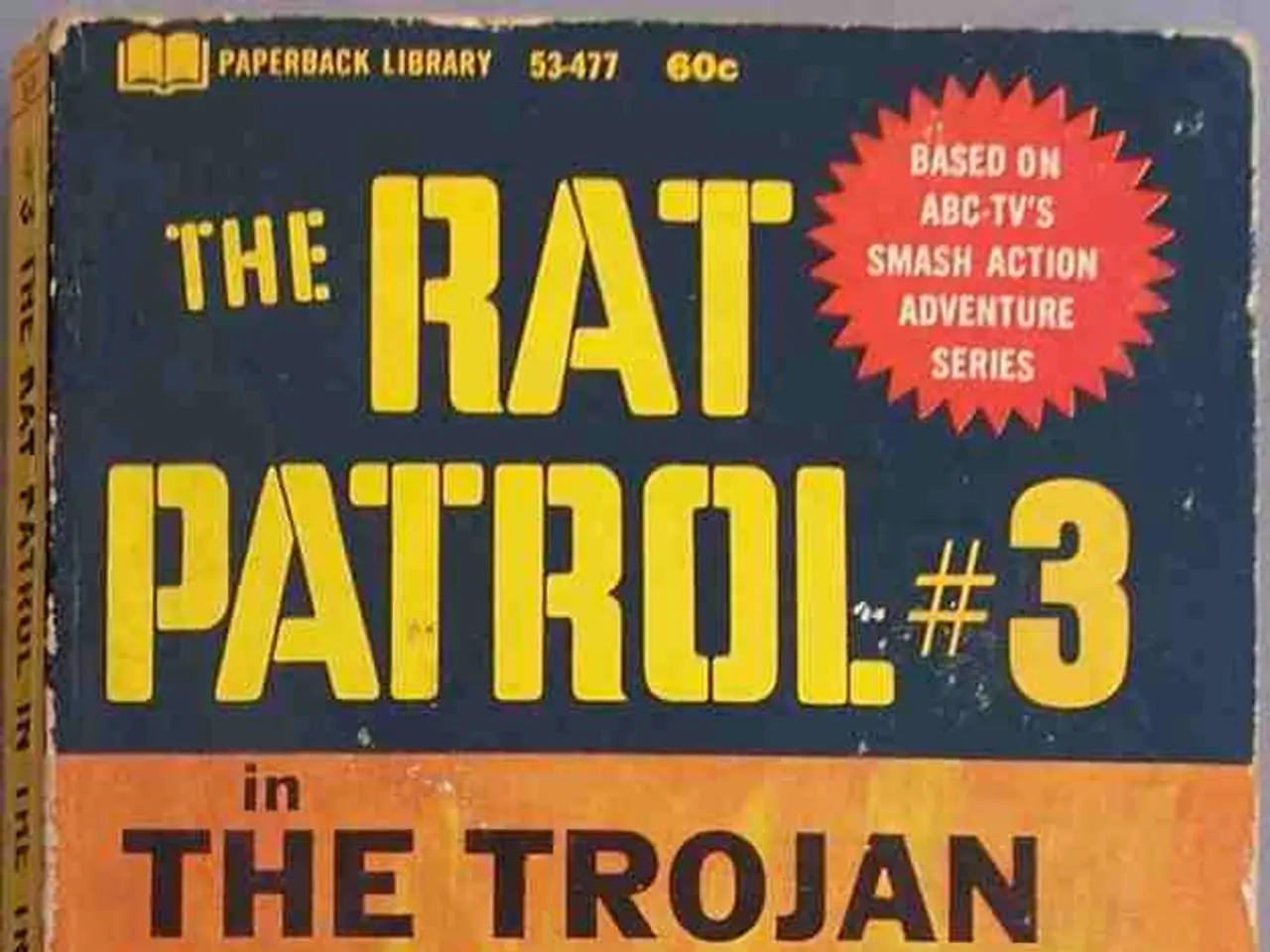Nabokov's 'Lolita': Misinterpretation in Translation - From Literary Heartbreak to Enduring Pop Culture Icon
Rebranded Examination: Unmasking the Dark charm of Vladimir Nabokov's Lolita
Vladimir Nabokov's Lolita remains a literary enigma, its hypnotic prose and profound commentary on human desires resonating powerfully, even seven decades post-publication. Yet, its controversial subject matter — the narrative of Humbert Humbert's obsession with and abuse of young Dolores Haze — has spawned endless debates and misinterpretations. In an era where discussions about consent, power dynamics, and victim narratives have thrived, a fresh perspective on this subversive novel offers fresh insights and lingering questions about our reading, interpretation, and engagement with complex literature.
The Illusion of Love
The heart of Lolita lies in Nabokov's decision to filter the story through Humbert Humbert's unreliable first-person narration. From the opening lines, infamously endowed with lyrical prowess ("Lolita, light of my life, fire of my loins. My sin, my soul."), readers are pulled into Humbert's captivating manipulation. He presents himself as a tragic, irresistible hero, a man helplessly bound to his explosive desire. Through ornate language, cultural references, self-effacing humor, and passionate appeals, Humbert seeks to justify his criminal transgression.
Today's readers, equipped with a contemporary discourse around gaslighting, grooming, and manipulative narrators, soon recognize Humbert's tactics. Modern readers often read Lolita with a heightened skepticism, carefully navigating the chasm of Humbert's tainted narrative.
Dolores Haze: The Hidden VoiRx
A central shift in modern interpretations lies in the focus on unearthing the real Dolores Haze hidden behind Humbert's fictional creation "Lolita." Snippets of her true character shine through, such as her sleepless crying spells following her sexual abuse, her attempts to negotiate for small privileges in exchange for sexual acts, and her poignant battles for freedom. These honest portrayals underscore the power dynamics at play in their relationship, painting her not as a seductress but as an abused child trying to survive.
The Corruption of Culture
The trivialization and misuse of Lolita extend beyond its themes, with the term "Lolita" now synonymous with sexualized innocence in various cultural outlets. Fashion, music, and film have often embraced this distorted representation, neglecting the novel's steely critique of predation.
Pop musical artists like Lana Del Rey have paid homage to "Lolita," glamorizing its twisted narrative and fueling misunderstanding about the novel's original message. Tunes like "Lolita" and "Off to the Races" use Nabokov's infamous opening lines to create a sanitized, commercially viable version of transgressive desire, stripping it of the moral horror that Nabokov intended.
The Tragic Misunderstanding: Adaptations Gone Awry
Years of cinematic efforts to bring Lolita to life have mostly failed due to the impossible task of showcasing the intricate narrative while maintaining the distance that Nabokov's prose creates. This is evident in adaptations like Stanley Kubrick's 1962 film, which toned down the story's darker aspects to meet era-specific production codes, or Adrian Lyne's 1997 adaptation, which, while more faithful to the book, came under fire for its provocative marketing and visual representation of underage Dolores.
Intent vs. Reception: Nabokov's Lost Vision
The gap between Nabokov's intentions and Lolita's cultural understanding is perhaps most obvious in its cover designs. Initially, Nabokov asked for covers void of female imagery, preferring "pure colors, melting clouds, accurately drawn details, a sunburst above a receding road with the light reflected in furrows and ruts, after rain." Instead, publishers often insisted on provocative cover art, perpetuating the commodification of the "Lolita" archetype.
This commercial disregard for authorial intention is reflected in society's broader misinterpretation of Lolita as a sexualized romance rather than Nabokov's intended critique.
Nabokov's Moral Compass: Guiding Modern Readers
Despite the novel's difficult subject matter, Lolita contains a clear moral structure, one that contemporary readers may more intuitively appreciate. Nabokov masterfully employs numerous tools to challenge Humbert's self-justifications, from the story's very structure as Humbert's prison memoir to subtle narrative cues revealing Dolores's hidden suffering.
Ethical Reading: Navigating the dark Woods
Modern readers often focus on the ethical questions surrounding Lolita: can we separate the beauty of the prose from its morally reprehensible subject matter? Can we read the story without being complicit in Humbert's perspective? These discussions reflect broader conversations about the ethics of representation in art and literature. In the case of Lolita, the challenge lies in apprehending its power while acknowledging its repugnant core.
The Relevance of Lolita: A Timeless Message
Despite evolving societal attitudes, Lolita remains remarkably current, its themes of manipulative narratives, silenced voices, and societal complicity resonating strongly with present-day discourse. Modern readers bring new frameworks for understanding power, victimhood, and narrative reliability to the novel, which enrich our appreciation of Nabokov's extraordinary achievement without excusing Humbert's crimes.
More than ever, Lolita reminds us to read carefully, observe beneath eloquent rhetoric, and listen for the silenced voices — even when they come from an abuser's pen. It stands as a testament to literature's unmatched ability to reflect and provoke discussions about pivotal social issues, challenging readers to confront uncomfortable truths about power, desire, and the stories we tell to justify wrongdoing.
PeePs = [books, coquette, Lana Del Rey, literature, Lolita, Nabokov, pop culture, romanticism, russian lit, tumblr]
- In the realm of literature, Nabokov's Lolita continues to engage readers with its seductive prose and profound exploration of human desires, despite its controversial content dating back seven decades.
- The pop-cultural phenomenon of sexualized innocence, often exemplified by the term "Lolita," can be seen in various artforms such as fashion, music, and film, a misuse that Nabokov's novel critiques yet fails to avoid.
- Artists like Lana Del Rey have paid tribute to Lolita through their music, glamorizing the twisted narrative and distorting the original message intended by Nabokov.
- Adaptations of Lolita have struggled to convey the complex narrative while maintaining the required distance that Nabokov's writing creates. This is evident in various film adaptations, such as Stanley Kubrick's 1962 version and Adrian Lyne's 1997 adaptation.
- Cultural misunderstanding of Lolita has led to questionable representations, with an emphasis on its romantic aspects rather than Nabokov's intended critique of predation and manipulation. Today's readers, with a contemporary discourse on power dynamics, consent, and ethical reading, can contribute to a more nuanced understanding of the novel.








